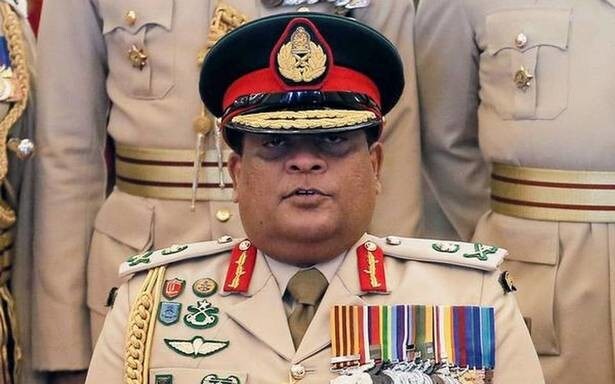 Washington DC: In light of the recent tragic cases of Rimsha Masih, a fourteen year-old disabled Christian girl imprisoned under Pakistan’s blasphemy laws, and Rinkle Kumari, a nineteen year-old Hindu girl kidnapped and forcibly converted to Islam, the Hindu American Foundation (HAF) hosted a Capitol Hill Briefing recently to highlight the persecution of minority women in Pakistan. The widely attended briefing attracted Congressional staffers, U.S. State Department officials, non-governmental organizations, religious freedom advocates, and members of the media.
Washington DC: In light of the recent tragic cases of Rimsha Masih, a fourteen year-old disabled Christian girl imprisoned under Pakistan’s blasphemy laws, and Rinkle Kumari, a nineteen year-old Hindu girl kidnapped and forcibly converted to Islam, the Hindu American Foundation (HAF) hosted a Capitol Hill Briefing recently to highlight the persecution of minority women in Pakistan. The widely attended briefing attracted Congressional staffers, U.S. State Department officials, non-governmental organizations, religious freedom advocates, and members of the media.
Bringing together a high-profile panel of policy experts and human rights activists, the briefing explored the legal, institutional, and societal challenges facing minority women in Pakistan, as well as recommendations on how to alleviate their plight.
The program’s first speaker, Samir Kalra, HAF’s Director and Senior Fellow for Human Rights, provided an overview of the violence and discrimination faced by non-Muslim women in Pakistan. In particular, he focused on the prevalence of sexual and physical violence against Hindus and Christians under the bonded labor system.
“The rural districts of Sindh and Punjab provinces have seen the bonded labor system flourish and systematically enslave Hindu and Christian women,” said Kalra. “An archaic and pernicious system officially prohibited by law, but openly practiced by Muslim landlords in conjunction with support from local politicians and police, this modern day form of slavery is characterized by patterns of abuse, illegal detention, physical violence, and sexual exploitation.”
Kalra’s talk was followed by remarks from Lisa Curtis, Senior Research Fellow at The Heritage Foundation, who added a unique perspective based on her first hand experience in Pakistan during the mid-1990s and her in-depth knowledge of the region. Citing the example of Malala Yousafzai, the fourteen year-old girl shot in the head for openly advocating for girls’ education in the Swat Valley, Curtis outlined a clear connection between militancy and extremism in Pakistan and the deterioration of women’s rights. She further noted that Hindu and Christian women have been increasingly subjected to human rights abuses in recent years.
“The fate of women in Pakistan will reflect the nature of the Pakistani state and whether it will be a stable society that controls terrorists or a state that harbors them,” said Curtis. “Allowing women to live dignified lives and to take part in the social, political, and economic life of the country will both help guarantee their rights as human beings but also help prevent extremist ideologies from taking root in Pakistan.”
The panel’s next speaker, Dr. Rubina Greenwood, Chairwoman of the International Sindhi Women’s Organization (ISWO) and Vice Chairwoman of the World Sindhi Congress (WSC), discussed the systematic abductions and forced conversions of Hindu girls in the country’s southern Sindh province. Dr. Greenwood, who led a human rights campaign in Europe on behalf of Rinkle Kumari, also noted the impact of such incidents on the increasing migration of Pakistani Hindus to India.
Similarly, Kavita Tekchandani, a Los Angeles based attorney and human rights activist, provided a detailed summary of the blasphemy laws in Pakistan, and their disproportionate impact on religious minorities. Moreover, she described the political and social marginalization of Hindu women in Pakistan and the severe discrimination they faced without formal recognition of their marriages.
“One of the primary structural hindrances for Hindu women in Pakistan has been the state’s refusal to officially register Hindu marriages, which has deprived Hindu women access to basic rights and services,” said Tekchandani. “The passing of a Hindu Marriage Act, therefore, is imperative to the safety, and civil rights of Hindu women living in Pakistan.”
Knox Thames, Director of Policy and Research at the U.S. Commission on International Religious Freedom (USCIRF), concluded the panel by expounding on Pakistan’s archaic blasphemy laws, the kidnappings and conversions of both Christian and Hindu girls, and the rise of violent extremism in Pakistan, amongst other issues. Consequently, he strongly maintained that Pakistan should be listed as a Country of Particular Concern (CPC) by the U.S. State Department.
“Pakistan is arguably the most glaring omission on the State Department’s CPC list, as the government continues to both engage in and tolerate systematic, ongoing, and egregious violations of freedom of religion or belief,” said Thames. “Promoting respect for freedom of religion or belief must be an integral part of U.S. policy in Pakistan, and designating Pakistan as a CPC would enable the United States to more effectively press Islamabad to undertake needed reforms.”
The briefing also featured a short poignant film on the ongoing struggles of Pakistani Hindus and concluded with a moderator led question and answer session with the panelists.
Prior to the briefing, HAF held highly productive meetings with the Tom Lantos Human Rights Commission (TLHRC), the State Department’s AfPak office, the U.S Association for International Development (USAID), and a number of Congressional offices. The briefing was complemented by HAF’s ongoing efforts in advocating Congressional offices to co-sign a letter initiated by Rep. Robert Dold (R-IL) and Rep. Brad Sherman (D-CA) in September 2012, encouraging Secretary of State Hillary Clinton to address the plight of religious minorities with her counterparts in Pakistan.
India Post News Service






